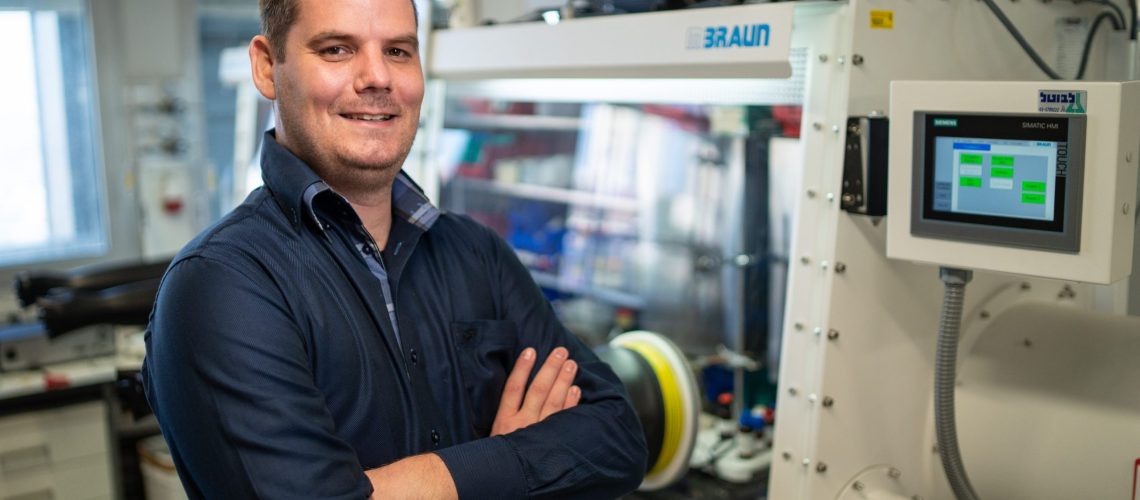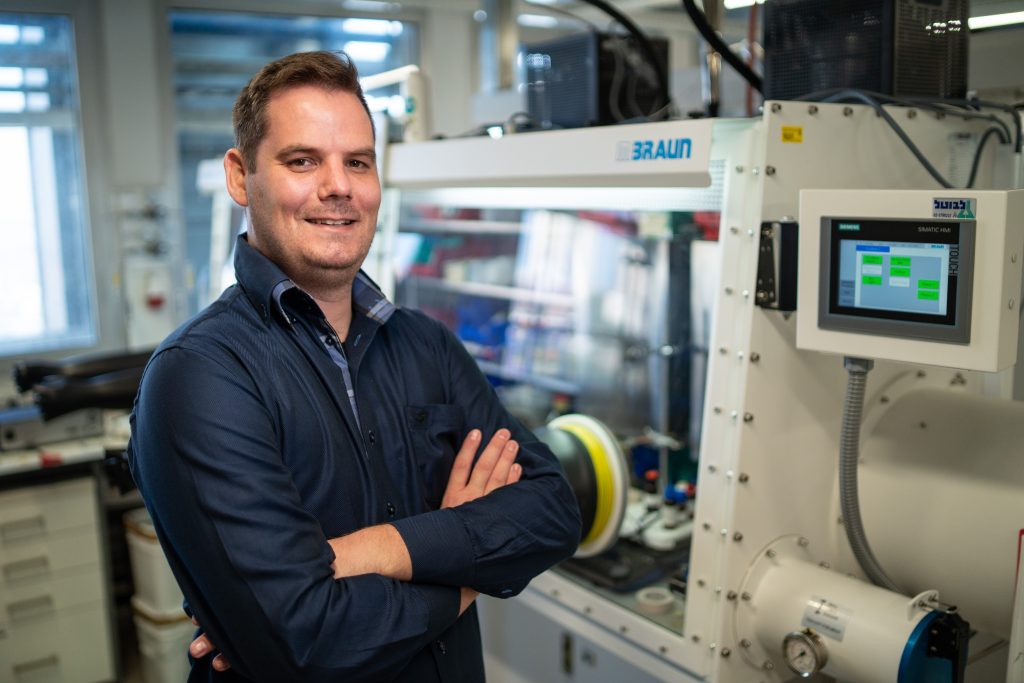Graham de Ruiter, an award-winning researcher in the Schulich Faculty of Chemistry at Technion–Israel Institute of Technology in Haifa, originally moved to Israel in 2008 from his native Netherlands for a PhD at the Weizmann Institute of Science. For his postdoc, de Ruiter left Israel to work at the California Institute of Technology.
In 2017 he returned for a faculty position at Technion in 2017. Why? Because he thought Israel was the best place in the world for conducting his research. Today, de Ruiter’s inorganic materials lab primarily explores ways to use earth-abundant metals in catalysis to drive sustainable chemistry. Here, de Ruiter explains why he wanted to work in Israel and the promise and potential the country holds for international researchers.
What initially drew you to Israel?
I first came to Israel in 2007 after my sister attended an international sports initiative here. She told me great stories about how wonderful Israel was, so I started looking for ways to combine my master’s research with a visit. I decided to be bold and emailed a professor at Weizmann with whom I wanted to work. I asked him if I could join his research group for one year and, to my surprise, within three days it was arranged: housing, my visa, everything. Typical Israel. It was an amazing experience. Then I went home, finished my master’s degree, and a week after that I was on my way back to Israel to start my PhD.
What do you mean by “typical Israel”?
People are very good at making things happen. They say, “Let’s get started and we’ll figure out the details later.”
Why did you decide to move to Israel for your PhD?
I stayed in contact with my supervisor, Prof. Milko van der Boom, and he asked if I wanted to come back. I didn’t need a lot of time to think about it. Back then, I would have said Weizmann was one of the best places in the world to do research. Now I’d say that Israel is one of the best places in the world to do research because a lot of academic institutions here are similar. Weizmann may have started attracting international students, researchers and faculty members a little earlier and implemented English-language programs sooner, but other universities have caught up.
Why is the academic environment in Israel conducive to conducting good research?
There are several reasons. First is the collaborative nature and openness of professors. They’re quite accessible, which makes it very easy to discuss ideas and work together. Nobody is really protective of their research. Second, contrary to Europe, where most universities have buildings spread throughout a city, Israeli institutions typically have one research campus where fields like biology, physics and materials science are close together, which makes it easy to collaborate. All the institutions are also located within about two hours of one another, which encourages collaborations, equipment sharing and the exchange of research ideas. Whenever you have people talking, ideas will emerge. Third, the equipment is state-of-the-art. It’s very difficult to find other countries where laboratory equipment this good is available in so many places. Fourth, because Israel is a research powerhouse, a lot of well-known international researchers — including Nobel Prize laureates — visit, and institutions share their visitors. If somebody is coming to give a talk at Weizmann, for example, they’ll do one at Technion, too. That helps create common ground people can build upon.
How much of a factor is government support?
The Israeli government is very interested in funding research. This funding supports innovation in chemistry, computer science, physics, pharmaceuticals and many other fields. Israel excels at pretty much every STEM subject. Israel is also the international per capita leader in venture capital investments, which helped build its reputation as a start-up nation. This is a cycle that drives new research. Israel realizes that if you get smart people together and give them a budget to do research, good things will happen. This culture also applies to university research labs, many of which operate like start-up companies.
What are lab sizes like?
Most of the groups I’ve been with in my career, including in the Netherlands and at Caltech, were between 10 and 20 people. Most labs in Israel have between 8 and 15 people. This has certain benefits, such as access to your supervisor. It allows you to be more involved with a project, to have regular meetings with the whole group. As a student, I found these smaller sizes more effective. You get more personal attention. Now, as a professor, I tell my postdocs and students they should come to my office whenever they want. If my door is open, they can come in, and I’ll drop what I’m doing to discuss whatever they want. They can call or message me at any time. Most professors here are like that.
Beyond work, what have you enjoyed most about living in Israel?
It has a classic Middle Eastern culture. People are very warm and welcoming. They invite you into their homes. The parents of my best friend invited me over for a Friday night dinner, and then to a wedding, and before I knew it I had basically become family. That’s something I really enjoy. Also, when I was living in a guest house with a lot of other international scientists, we’d go out for breakfast, sit in the sun and talk, and then an hour later I’d step into a lab at one of the best academic institutions in the world and do high-level research. The lifestyle is laid back, but you can also be at the top of your game as a scientist. Where else can you do that?



